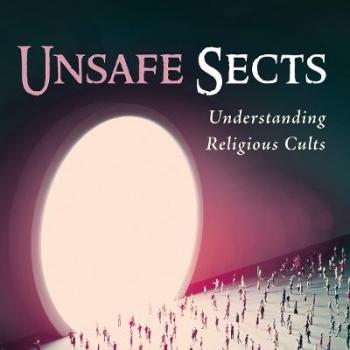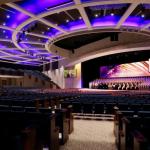Alexander Lang: Leaving The Pastorate
His name is Alexander Lang, and most people would have never heard of him had it not been for his letter detailing his reasons for leaving the ministry. Pastor of Arlington Heights Presbyterian Church in Illinois for 10 years, Lang gave his last sermon on August 27th. He chose to explain his reasons for leaving Arlington Heights and the pastorate in an online forum. Lang describes the pressures, real and perceived, of ministry. He also lays bare some theological issues, I think, that necessitated his leaving the ministry.
Why I Left the Pastorate by Lang
Leaving is Hard
In his post, Lang posts a picture of him preaching his last sermon. Standing between the small lectern and the pulpit in his blue suit, Lang gestures to his congregation describing his need to step aside. With his eyes downcast and his coat button open, he tells his congregation farewell.
It is not easy to leave the ministry. Lang has served the Church for 20 years. A published author, Lang has degrees from Princeton Theological Seminary, Rice University, and has completed additional theological study at Oxford.[1] He has not only spent 20 years in ministry, but he has spent nearly a decade preparing for ministry. Leaving one’s vocation and training behind is a difficult decision, and no one who has done it would take it lightly. Lang is not alone. Barna documents what it calls “the great resignation” among pastors. 42% of pastors have thought of quitting.
Pastors Share Top Reasons They’ve Considered Quitting Ministry in the Past Year
Enmeshment
Lang’s first reason for leaving is the most obvious, the job can be stressful. Part of the stress is exactly what Lang mentions, pastors become enmeshed in people’s lives. One of the privileges of being a pastor is the privilege of being part of people’s stories. People allow pastors see their lives in ways they might not allow others. Pastors get the chance to weep with people at funerals, shed tears of joy when a previously infertile couple has their first baby, dance and feast at weddings, and know of their members’ most intimate struggles. If the pastor is not careful, enmeshment is exactly what will happen.
A Therapist’s View
Author of Generation to Generation, Edwin Friedman, has a different word for this phenomenon: interdependency. In some contexts, interdependency might sound good, but the way Freidman uses the term, it is not. Interdependency results from the inability to remain a self in relationships with others. Once a the group loses selfhood, no single person can be an individual. The group, then, starts to share emotions. When one person experiences anxiety or pain, the whole system experiences it. All the members are so interconnected that they are emotionally interdependent. The constant pull, once the self is lost, creates intense pressure. When this happens in a church, the church seeks a bearer of the anxiety. That role is usually filled by the pastor.
Lang eloquently describes people offloading their anxiety onto him, or rather his position. He hears the stories of his people, they become his story. Every person who is angry with a spouse can tell him what is going on. He bears that anxiety. Every person who is angry with God can tell him their deepest hurt, and he bears that anxiety too. Eventually, he bears the stress of the whole congregation, and that is an insufferable load. No wonder he resigned.
Unhealthy Functioning
The problem is, however, this is precisely the wrong way to function as a pastor. The most difficult thing to learn as a pastor is not theology. The mysteries of the Trinity, the intricacies of the Revelation, and the cat-wrangling known as church leadership are simple in comparison to learning one skill: boundaries. One has boundaries when he or she can let others own their issues. To have boundaries, one has to be comfortable allowing people to experience their pain. Most people are not comfortable with that.
How Stress Emerges
Pastors often want to take those issues and help people heal. We want them to learn how to have better relationships and grow spiritually. If we cannot allow them to tell us their anxiety without it becoming our anxiety, however, we are starting to carry a load we do not have the power to carry.
Think of it this way, the body has a natural boundary: skin. If the skin gets compromised, the body is in danger. Likewise, if the boundary of self cannot be maintained, the minister is in danger. The stress just might overcome him. According to Freidman, stress is not having too much to do. Stress is having responsibility for something and no power to do anything about it. When a pastor accepts another’s anxiety as his own, stress is the inevitable result.
1000 Bosses
Lang argues that being a pastor feels like having 1000 bosses. I suppose there is some truth in that. I would suspect, though, that the right way to view it is 1000 customers. In any business, the customer calls the shots. In church, we like to say that God is the one who we want to please. In theory, that is true. If a group of members decides to suspend giving or attend another church, though, we want to try to please them. Often we do try and succeed. Sometimes we try and fail. The effort though is often a distraction from trying to please God.
Whatever the outcome, trying to please everyone is a bad idea. I have never seen it work well. Instead of trying to please everyone, the Church should practice self-definition. What is the church? Why is it here? What is its mission? How should it accomplish the mission? What is God calling it to do? What is God’s design for it? When a church focuses on these questions, it will alienate some. It will also mature the system. Eventually, people looking for a church focused on mission take part.
Unrealistic Expectations
Yes, the expectations for pastors can be unrealistic. Pastors are supposed to preach great sermons, lead with success, administer a complicated organization, and care with distinction.
One reason for the irrational expectations is the increasing expertise in our society. In his book The Checklist Manifesto, Atul Gawande notes that in the early 20th century a doctor only needed a high school degree and one year of medical training to practice. Now doctors have high school, college, a 4-year medical degree, and 3-7 years of residency. Some doctors even go on to do fellowships lasting 1-3 years in a discipline after that. He writes, “We live in an era of superspecialists…”[2] On top of that, we expect doctors to provide compassionate interactions with patients, interact well with other physicians on staff, manage professional and community relationships, and lead in their respective practices. Other professions have experienced similar levels of increasing specialization as well.
Clergy are not different than other professionals in the increasing demands on their expertise. Among Baptists in the 1900s seminary education was not expected. It is still no longer required. Now, however, most Baptist congregations do expect seminary education from their pastors. The 3-4 year Master of Divinity is the standard. Larger congregations often expect a Doctor of Ministry which is another 3 years minimum beyond the MDiv. If a congregation prefers a PhD instead, that is 5-7 years beyond the MDiv. Congregations expect pastors to be well-versed in the Scriptures and their theological tradition, expect quality preaching, require consistent pastoral care, and demand good leadership.
Of Course It Is Hard,
If that sounds like a hard job, it is. It is no harder, though, than the jobs many people in our congregations do. Teaching, being a nurse, a doctor, a lawyer, a business executive, a politician, and most other professions are quite difficult as well. Pastors should not expect it to be different for them. If pastoring were not hard, anyone could do it. Because it is hard, it requires talent, training, and most importantly the power of the Spirit.
When Lang describes the unrealistic expectations of being a pastor, he is right. He also had to know that before becoming a pastor. Experiencing it is different than what one might have expected, but it is a known quantity.
The Role of Pastor
A mentor of mine once said that the role of a pastor is to teach, preach, care, and lead. Only rarely will a pastor excel at all four. Chances are the pastor will excel at one, and be good at the others. At a minimum, a pastor should be competent in all four. What should happen when a pastor is only competent in an area where the church needs excellence, is that the church should seek other persons with other gifts to help. The idea that a pastor should do everything is mistaken and relies on a view of the Church as consumers, not contributors.
Lang and Worship
While Lang’s struggles with ministry start with practical observations, his article betrays serious theological problems. His view of worship is wrongheaded. He writes, “When I became a pastor, I thought the reason why this group of people gathered every Sunday was to explore deep questions about life and push ourselves to become better humans.” No. Just, No. Imagine early Christians gathered in catacombs hearing his comment. I rather doubt they would be impressed.
The purpose of gathering every week is to worship the Triune God. We gather for worship because Jesus is Lord and because God is worthy of our worship. Worship is not an hour set aside for our deep questions about life and self-improvement. Exploring deep questions about life is the purpose of a philosophy class. Self-improvement is the purpose of therapy and pop psychology books at Barnes & Noble. In worship, Christians gather to present our lives to God and listen to what God has to say. Before we ask questions, God questions. Before we push ourselves, God calls us to Himself.
The Role of Scriptures in Worship
The Scriptures do speak to our questions, but their primary force is to bear witness to the risen Christ who died and rose again. With Jesus in view, our questions are bound up in the story of God and God’s people. Our questions may be answered, they may be transformed, and sometimes they are revealed as irrelevant.
We are to grow in Christ, and worship is fuel for that. The purpose of worship is not to push us to become better humans, however. The best-case scenario for that kind of worship is a moralistic harangue disguised as a sermon. The worst-case scenario for that kind of worship is the proclamation of the latest therapy techniques. The view of worship he articulates is not healthy. I am not sure how to reconcile his view of worship to how the Church has worshipped from its inception.
Growth Mindset vs Fixed Mindset
If his misunderstanding and misuse of worship were not enough, his misuse of his therapist’s advice adds to the problem. His therapist taught him a truth, some people have a growth mindset and others have a fixed mindset. Those with a growth mindset continue to learn and take risks. Those with a fixed mindset do not like to be challenged. The purpose of the tool is to look internally. It exists to challenge the self to grow. It is a terrible tool to examine the mindset of others.
No person can look into another person and define their mindset. Using a tool like the fixed versus growth mindset to evaluate others is more than a bit condescending. To baldly state that most Christians do not want to be challenged is shocking in its error and arrogance.
What people do not want is their pastor “… dismantling the traditional Christian belief system in service of logic and reason…” to make sense of the world. His website goes even further. He wants to “break down the Christian faith one piece at a time so we can rebuild it into something that is actually worth believing.” Why would a person want to be a pastor if he did not believe Christianity was worth believing?
Pushing Members
Lang believes the role of the pastor is to push his members to grow. Now growth is certainly a good thing. Growth is not the result of dismantling the traditional Christian belief system, though. Growth happens as people yield themselves to the teachings of Scripture.
We have a faith that was delivered to the apostles. It needs no dismantling. It needs expression and proclamation. Protestants believe in the Priesthood of the Believer. The concept means that each individual in the Church is responsible to hear and respond to the proclamation from the pulpit. If the preaching is at variance with orthodox Christianity, they are responsible for speaking out. Lang treats those who differ with his dismantling with a bit of contempt. They do not appreciate nuance, they do not like complexity, and they want the “party line.”
Further, he argues most pastors eschew complexity in favor of black-and-white thinking. I wonder what the basis of that assertion is. According to one survey, there were 444,000 members of the clergy in the United States in 2022.[3] On what basis does he make his claim that most of them prefer black-and-white thinking? How could he know? It is unfair, to say the least.
Bad Fit for the Pastorate
Lang concludes that his skillset and perspective are a mismatch for the institutional church, and what he offers is not what most Christians seek. I think he’s right, but not for the reasons he thinks. If his skills are dismantling the traditional Christian belief system, then no. He is not a fit for the pastorate. If what he offers is an air of superiority to other clergy and congregants who want to hear orthodox Christianity, then he is correct. He is a mismatch for the pastorate.
The problem is not with the Church, though. The problem is with Lang.
Also by Layne Wallace: What is God Like?
[1] https://patch.com/illinois/arlingtonheights/new-pastor-for-first-presbyterian-church-of-arlington-heights
[2] The Checklist Manifesto, 29.
[3] https://datausa.io/profile/soc/clergy













